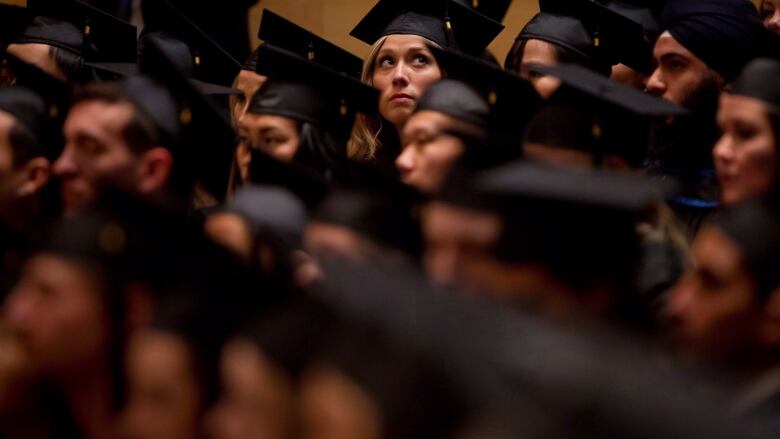What if higher education isn't the way out of income inequality?

Today, the richest 10 per cent own nearly half of all wealth in Canada. That's according to a recent study that examines the roots of the country's increased concentration of income among the hands of a small elite. The report also notes that the 100 richest Canadians now have a collective net worth of $230 billion - and growing.
Education has long been seen as the great equalizer to help narrow the gap between the haves and have nots. It's a widespread belief espoused by teachers, employers and politicians, the world over. But a new study by two Canadian economists has turned that consensus on its head. They say not only is more education NOT the solution to inequality, it may actually be making the problem worse.
We hear from one of the study's authors, Kelly Foley, an assistant professor of economics at the University of Saskatchewan.
This interview has been edited for clarity and length.
Attending university has long been seen as a crucial means to overcoming income inequality. What does your research say about that belief?
Well, it turns out that Canadians are far more likely to attend university if they come from upper- and middle-income families. And the barriers for low-income youth are not primarily financial. So a lot of the policy remedies like lowering tuition, expanding the number of spots or encouraging RESPs, that's just going to end up benefiting children from upper- and middle-income families the most.
Canadians do have more options than just university. What role do trade schools or vocational colleges play in lifting people up economically?
College, trades and apprenticeships are far more accessible; that's the most common credential that's held in the Canadian labour market. And the issue here is that the completion rates are very low. In the most recently available data, we see completion rates of something between 40 per cent and 56 per cent, so those are very low for apprentices. And for college programs, it's about 1 in 4 do not finish their college programs. If we just purely expanded those programs without addressing the underlying issues for the completion rates, it's not going to improve peoples' well being and we could end up with more individuals with debt but no credentials.
So if higher education isn't the answer, what should be the priority for governments that are trying to encourage economic mobility?
We think there's a lot of promise in investments that focus on the early years and adolescence. There's lots of evidence that high quality childcare programs and preschool programs and income transfers to low income youth can improve childrens' outcomes. So when you focus on the early years, you're looking at people who are facing a small fence-style barrier, as opposed to trying to affect the outcomes of, at the end of high school, you're looking at a brick wall. So we see investments in the early years and adolescence as being a potential route to permanently reduce inequality. But it's a long-term route.